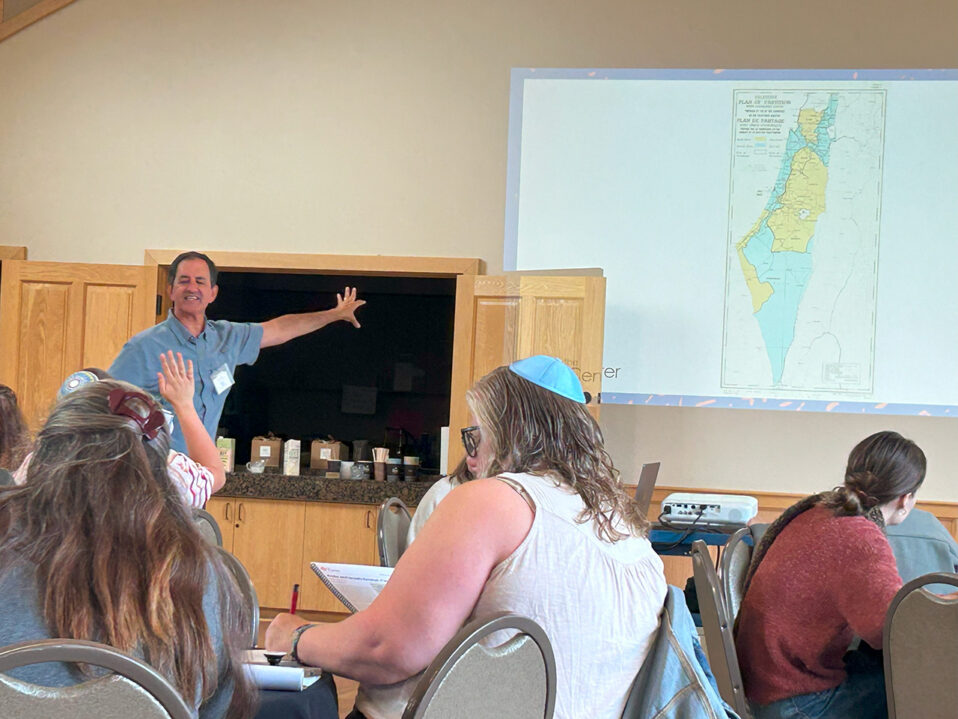By: Debra Sagan Massey, Senior Educator, Jewish LearningWorks
This was not how my teenage son envisioned he would be spending his sophomore year in high school. Developmentally, this is the time adolescents pull away from their parents – a time to develop who they are and what they believe. They should be out of the house, meeting new people and gaining their own perspectives on the world around them.
But COVID-19 has certainly changed all that. Now our teens are home with their parents and reduced to seeing their friends on Zoom boxes. Rituals and milestones that they were looking forward to are no longer on the horizon. Add in the destructive effects of climate change, repeated cases of racial injustices and the vicious slurs of presidential candidates, and life can seem pretty bleak. How do we know if our teens are “just bummed” or if they need more support to navigate today’s challenging world?
Youth Mental Health First Aid is a course that is being taught around the world to give individuals the tools to recognize and respond to the signs and symptoms of a teen experiencing a mental health crisis. This course uses the acronym “ALGEE” as a tool to help participants remember the action plan when supporting a teen. Here are the various steps, and how you can use them with the teens in your life:
- Approach, Assess for the risk of suicide or harm and Assist — Our first step is to make sure the teen is safe from harm. If you are concerned for their safety, we want to get professional help. Call the National Suicide Prevention Lifeline at 1-800-273-8255 or text 741741. If there is no immediate danger, show the teen you care. Connect with the teen, let them know you are there for them and available to talk whenever ready. Simply saying, “I have noticed you seem upset lately. Do you want to talk about it?” can be the doorway that a teen needs to share with you so you can help support them.
- Listen non-judgmentally — Once a teen feels comfortable opening up to you, give them the space to do so freely. Listening non-judgmentally can help the youth to feel heard, understood and acknowledged. Offer verbal and nonverbal cues that show the teen you have heard them, such as nodding your head, making eye contact, leaning in and creating silence. You can also use verbal cues, such as “ahh” or “hmm” and even asking, “How long have you been feeling like that?”
- Give Reassurance and Information — This step is sometimes thought of as “giving hope with facts.” Just like when we have broken a bone, we are given steps to healing such as rest, cast, and physical therapy, so too someone with a mental health challenge can use the encouragement in words such as, “Many people who have experienced x feel sad and overwhelmed, but I want you to know you are not alone in this. There are steps we can take to help you feel better.” Your reassurance is essential in helping to convey to the teen that recovery is possible.
- Encourage Appropriate Professional Help — When you suspect a youth is experiencing a mental health challenge, it is important to seek appropriate profesional help early. There are many types of professionals who can support teens with a mental health challenge such as pediatricians, social workers, counselors and therapists. Offer to help connect the teen to a professional, and remain patient and open. An idea that is rejected by a teen today may seem much more helpful tomorrow.
- Encourage Self-Help and other Support Strategies — There are a wide variety of self-help and coping strategies that are effective with teens. There are programs such as support groups, book clubs, volunteering programs and art classes. Encourage teens to think of the things that give them joy- exercise, yoga, journaling, sports and hobbies. Mindfulness and meditation practices are life-long skills that can be integrated into daily routine. Encourage the teen to identify what works for them and help support them in those practices.
As a trainer for Youth Mental Health First Aid, I keep this action plan in my “back pocket” all the time. I’m listening and watching for signs that my kids, my friends, and my family might be in crisis. These times are challenging and everyone is experiencing difficulties. As adults who work with teens or have teens in our homes, we need to have our eyes open to what is “outside of normal teenage behavior.”
The Bay Area Jewish Teen Education and Engagement Initiative wants to enable all adults who interface with teens, whether that is at home, in the neighborhood or at work, to become certified in Youth Mental Health First Aid. The training has now moved online, and is available to anyone in our community for $36. Our next training is March 3, 2021; registration is online and can be found here.






